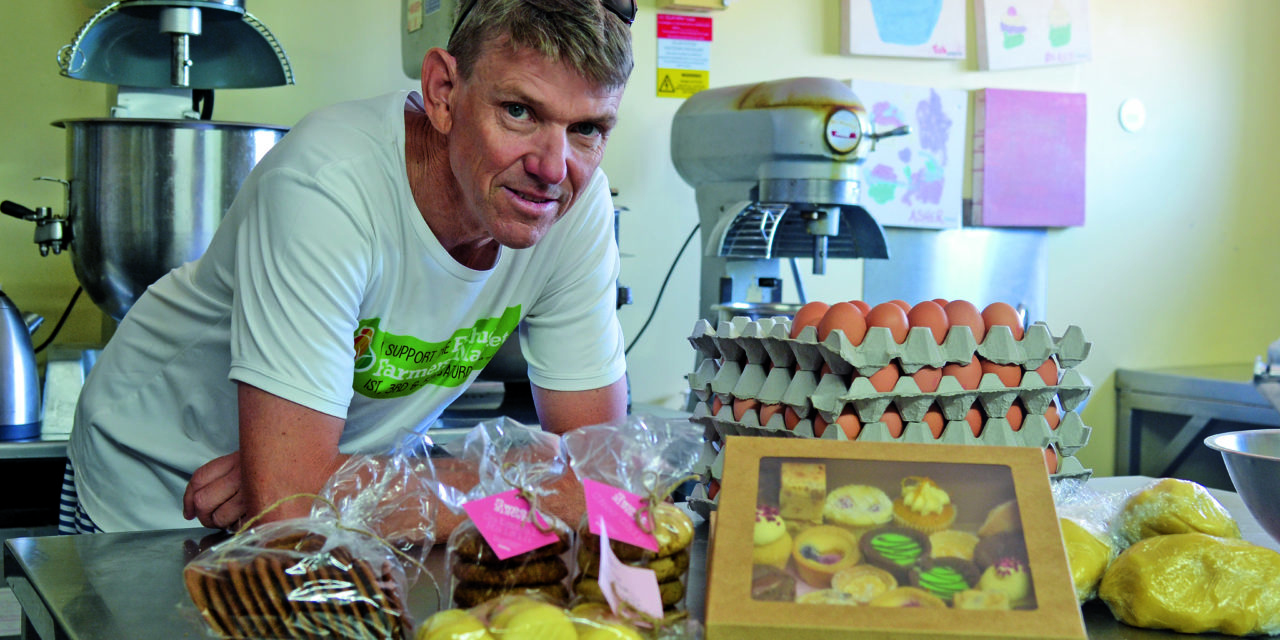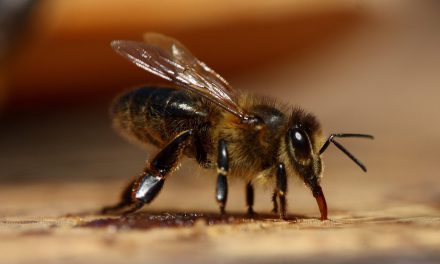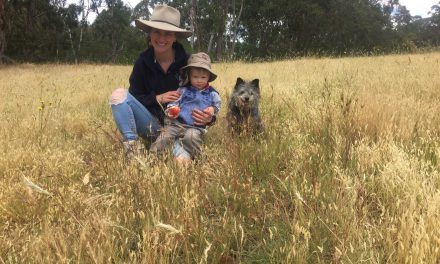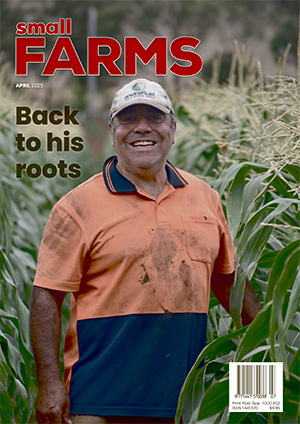The ubiquitous farmers’ market can be found in virtually every second country town — the length and breadth of the country. But you sometimes overlook just how critical a role they play in the establishment of off-farm opportunities and/or establishing new ones in the local economy. DANEKA HILL looks at a market on the NSW/Victoria border and talks with the city slickers it put on the path
FARMERS and markets go together so well, they have even come up with a name for it — farmers’ market.
Alexandria and Frank Coonerty owe their successful bakery business, Sweet Sisters, to their local farmers’ market in Echuca, Victoria.
The couple left Melbourne with a plan to start a catering business, but the first step and the first sale are always the hardest.
The decision to migrate north was driven by a desire to be closer to family in Numurkah and closer to the rivers of tourism dollars found in the Echuca area.
“We couldn’t go right back to Numurkah because there isn’t a café culture anywhere near there, but Echuca is close enough that the folks just need to ring up before they arrive,” Frank said.
Alexandria, a qualified chef who’d worked alongside the likes of Raymond Capaldi, Gary Mehigan and George Calombaris, was waitressing tables at a local restaurant before she got serious enough to lease the kitchen at Echuca’s old Cock and Bull hotel.
“To get my first customers I made up cake boxes and walked up and down the street handing them out, and that was how Sweet Sisters was born,” Alexandria said.
Despite all the enthusiasm, Sweet Sisters could have easily stayed as a spontaneous street business if it wasn’t for Alexandria’s next step.
“One of the most invaluable things we did right at the start was go down to the local farmers’ market,” she said.
“To be able to have a face-to-face conversation with your customers straight away is just what you need, and no one can talk about your business like you can.
“It was the best form of advertising you could have, just being in the community and talking about your product. It was how we picked up our really good wholesale clients, they would be out on a weekend trip with the family and they’d just stop to talk to us.”
Her husband Frank was labouring for a landscaper at the time, but as Alexandria got more and more business he eventually came on board.
For Frank the connection with the farmers’ market has been a rollercoaster ride — he’s gone from a labourer, to kitchen hand, to the Echuca Farmers’ Market secretary, to the person running the markets.
“No one else wanted to do it, I didn’t want to do it, but we are invested in the markets because it’s a part of our business, so I stepped up,” Frank said.
He took over the markets five years ago and despite having all that time to delegate, he can still be found at the helm, giving 10 thankless hours a week over to the markets.
“I like seeing new stall holders come through and watching them work out their methods,” Frank said.
“It is sort of where they all start their little journeys, by going down to the markets and seeing what sells.
“The initial mucking around with products is fun, I like that part of the markets, for sure.”
“And I help them because we’ve gone through the wholesale process and know a lot of local people, for example I can go to the cafes we’ve had business with as Sweet Sisters and say ‘hey, I know some good garlic people’.”
Frank said seeing success stories pass through was another aspect he enjoyed.
“People such as Pacdon Park (a free-range British butchery), they started off selling their pork pies at the markets, then they moved into manufacturing and retail, and now they have a store on High St,” he said.
“They have left the markets now, but it all started here.
“As far as a place to start out, there isn’t anywhere better than a farmers’ market.”
Frank said exposure was what the markets were all about.
“Farmers’ markets will attract quite a few restaurateurs and shop owners, who will go through and look at what’s around locally,” he said.
Alexandria said the face-to-face interactions with customers were priceless.
“Just asking people what they think of your food can lead to ideas you would never have thought of, and it can become a best seller. Our gingernut biscuits are a good example of this, a regular customer of ours went up to Queensland and bought some, and when she came back she asked if we could make them,” Alexandria said.
“They are now one of our bestsellers.”
For Alexandria, her wholesale business has been built on opportunities such as those gingernuts.
She’s hand delivered home-cooked meals to customer’s loved ones, taken on bizarre recipes, and at the moment she’s managing the canteen at Echuca’s St Joseph’s College, feeding her signature recipes to the customers of tomorrow.
Everything is an opportunity to grow if you approach it right.
“You never want to die wondering, so if you have an idea for a food based business and you can get it off the ground, to use a farmers’ market as an advertising and development tool is your best bet,” she said.
“The amount of opportunity we’ve gotten from the markets is ridiculous.”
As helpful as markets can be, the real trick is finding the right one.
The Echuca farmers’ market isn’t exactly a normal market — for one it’s 100 per cent food, 0 per cent trinkets, and for another its affiliated with the Victorian Farmers Market Association.
“The VFMA is a government body set up to ensure you don’t have any resellers at the markets and that its all local produce,” Frank said.
At the Echuca markets, everything is grown within 50 km.
“It does limit us because no-one is growing bananas or mangos down here, but it also sets us apart,” Frank said.
The fruit and vegetables come from the next town over, Kyabram, the avocados are grown by an orchardist up the road in Torrumbarry and the cherries are from across the Murray River in Moama.
“The bread is from Shepparton and our meat is from Tatura, so it’s all in the area, I don’t think anyone comes from as far as Bendigo,” Frank said.
The Echuca Farmers’ market runs every first, third and fifth Saturday every month.
The staggered timetable is designed with grocery shopping in mind.
“Most markets are monthly, but that isn’t ideal because people’s vegetables won’t last a whole month, so we are more frequent,” Frank said.
“It’s designed to break the cycle of supermarket shopping, but we aren’t really there yet because we don’t have the same range.
“A producer won’t make the same amount of money in one go as they would at a monthly market, but they can build up a regular customer base this way, and you get more exposure and it helps the guys selling the seasonal fruits like cherries and other stone fruit, because they have such a small window to make a profit.”
At $30 a site, Frank said farmers’ markets were the “cheapest promotion you can buy”.
It’s certainly done its job for Frank and Alexandria.








